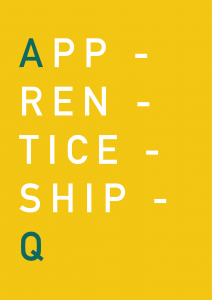ApprenticeshipQ Quality Criteria: From proprietary to formal standardization document
“Formal” standardization documents are those published by Bodies who are signatories of the World Trade Organization Technical Barriers to Trade Agreement (WTO-TBT Agreement), containing the Code of Good Practices for the Preparation, Adoption and Application of Standards. Examples of such Bodies, with different geographic scopes are: Instituto Português da Qualidade (IPQ) the Portuguese National Standardization Body; European Standardization Committee (CEN); and the International Organizational for Standardization (ISO).
The WTO-TBT Code of Good Practices is reflected at these bodies’ internal operational procedures (IPQ Procedures, CEN Internal Regulations; ISO Directives). In practice this means documents published by them are developed in strict respect of principles such as
- Openness and Transparency;
- Effectiveness and Relevance;
- Coherence;
- Impartiality and Consensus;
- Sustainable Development.
which increase its credibility in the market. Documents published by other entities are considered “proprietary” standardization documents and do not have a way to assure users of their method of development. This can negatively affect its exploitation.
In this framework, the ApprenticeshipQ Quality Criteria is considered a proprietary standardization document and, in order to increase its dissemination, expand its exploitation potential and assure its sustainability after the project lifetime, the ApprenticeshipQ Consortium, taking advantage of one of its partners’ (KIC) experience in the formal standardization world, presented the ApprenticeshipQ Quality Criteria to IPQ/CT 187, the Portuguese Standardization Technical Committee for Education and Training, and proposed it as a new work item to be published as a DNP Guide and to be subsequently submitted to ISO for further development as an Internation Workshop Agreement.
The proposal was approved and included in IPQ/CT 187 Work Plan for 2020. The ApprenticeshipQ Quality Criteria is therefore undertaking the necessary changes regarding writing style, terminology and format to fit the requirements of IPQ DNP Guides, as shown below. Before publication, envisioned for later 2020 or early 2021, the documents will be subject to public consultation. If you wish to contribute, please use this commenting template and submit it by email to sandra@knowledgeinnovation.eu.



